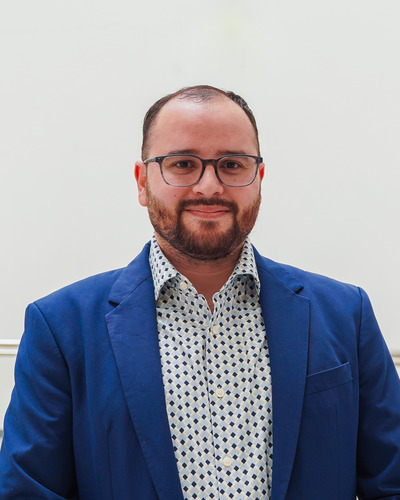Department of Communications and Networks Engineering
Welcome to the Department of Communications and Networks Engineering at Prince Sultan University. Our department is home to two dynamic programs: Electrical Engineering (EE) and Communications and Networks Engineering (CME). We are proud to announce that our CME program is accredited by the National Commission for Academic Accreditation and Assessment (NCAAA), underscoring our commitment to delivering high-quality education that meets the highest standards in engineering. Our faculty consists of highly qualified experts with hands-on experience from top-class universities around the world. Their deep expertise, with extensive hands-on experience in both academia and industry, and passion for teaching and research provide our students with an exceptional educational experience, blending theoretical knowledge with practical skills essential for success in today’s fast-evolving technological landscape.
Both programs are designed to equip students with the knowledge, skills, and hands-on experience necessary to excel in various industries. The Electrical Engineering program focuses on critical areas such as electrical power infrastructure, renewable energy markets, smart grids, electric vehicles, and communication systems. These areas are vital for the advancement of modern infrastructure and technology and align with Saudi Vision 2030. Developed in collaboration with industry partners, our programs provide students with access to world-class facilities and cutting-edge research areas, including Smart Grid, Power Electronics, and Electric Vehicles. Electrical engineers are in high demand across several core industries, including energy, automotive, telecommunications, and government sectors, where their skills are essential for solving complex engineering challenges.
In addition to our academic offerings, the department is proud to house two pioneering research labs: the Renewable Energy Lab and the Smart Systems Engineering Lab, in addition to the research group “Electromagnetics Research Group”. These labs are at the forefront of innovation, allowing students and faculty to engage in advanced research that addresses significant challenges in renewable energy, smart systems, and other emerging technologies. Our graduates are highly sought after by employers in the private and public sectors, particularly in industries such as telecommunications, renewable energy, and electrical power infrastructure. One industry partner shared, “Your graduates become successful problem-solvers within just two weeks, mastering tasks that typically take others months."
Our department remains committed to fostering an environment of creativity, innovation, and excellence. We continuously adapt to meet the needs of our stakeholders, ensuring that our programs remain relevant in an ever-changing world. We look forward to providing you with an outstanding educational experience and supporting your journey to becoming a leader in the fields of electrical engineering and communications and networks engineering.
As Nikola Tesla stated, "Electric power is everywhere present in unlimited quantities and can drive the world's machinery without the need of coal, oil, gas, or any other fuel," which emphasizes the crucial role of electrical engineering in harnessing renewable energy sources and shaping the future of energy production.
We invite you to explore our website to learn more about our curriculum, research initiatives, and faculty. Whether you are a prospective student, current student, or industry partner, we welcome your interest and encourage you to contact us with any inquiries.
Nikola Tesla, a Serbian-American engineer, futurist, and inventor, is renowned for his pioneering work in developing the modern alternating current (AC) electrical system, which revolutionized the way electricity is generated and distributed globally. Tesla first studied engineering and physics in the 1870s without receiving a degree.
About the Chair

Moustafa M. Nasralla (Senior Member, IEEE) received his BSc in Electrical Engineering from Hashemite University, Jordan, in 2010 and his MSc and PhD from Kingston University, London, U.K., in 2011 and 2015, respectively.
He is currently an Associate Professor and Chairman of the Department of Communications and Networks Engineering at Prince Sultan University (PSU), Riyadh, where he also leads the Smart Systems Engineering Laboratory (SSEL).
Dr. Nasralla’s research focuses on wireless communication systems, smart cities, IoT, network security, and machine learning, with over 80 publications in high-impact journals and conferences. He has led several national and international projects, including Intelli-Student for the British Council, 5G-enabled Smart City Development in Saudi Arabia, the surveillance solution development for U.K. Home Office, and EU FP7 CONCERTO project. He serves as a Guest Editor for multiple international journals. He is a Fellow of the Higher Education Academy (FHEA) and a Senior Member of IEEE.
